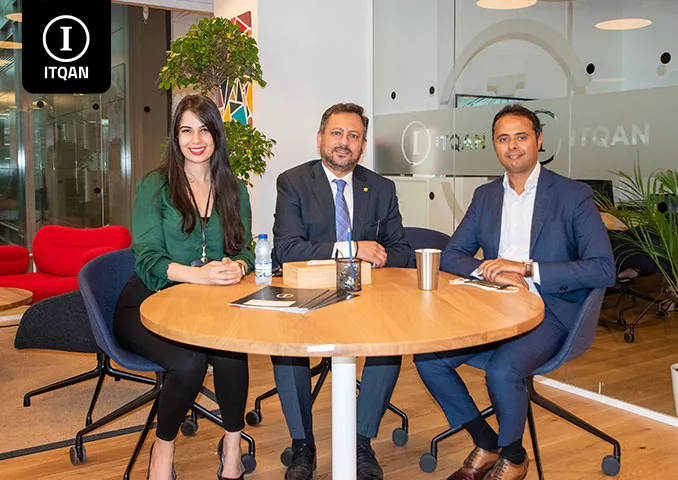How to Obtain a Trade License in Dubai
For many entrepreneurs interested in business setup UAE, obtaining a trade license in Dubai is the first and most crucial step. This trade license legally authorizes your company to operate within the chosen business activity, whether it’s commercial, professional, or industrial. Understanding the legal compliance, costs, and documentation involved is key to a successful launch.
Why a Trade License Is Critical for Business Setup UAE
In the UAE, particularly in Dubai, every business must hold a valid trade license issued by the Department of Economic Development (DED) or an equivalent Free Zone authority. The trade license ensures your operations are legitimate and recognized by local authorities, investors, and financial institutions.
Types of Trade Licenses in Dubai
Before diving into the application process, it’s important to understand the four main types of trade licenses available in Dubai:
- Commercial License: For trading activities including import, export, and sales.
- Professional License: For service-oriented businesses like consulting, IT services, and freelance work.
- Industrial License: For companies involved in manufacturing or industrial activities.
- Tourism License: For businesses offering travel, hospitality, or tourism-related services.
Key Steps to Obtain a Trade License in Dubai
Here’s a detailed roadmap for entrepreneurs planning a business setup UAE strategy and acquiring a trade license in Dubai:
1. Define Your Business Activity
The first step is choosing your business activity. Dubai DED lists over 2,000 permissible business activities. Selecting the right one ensures smooth approval, avoids penalties, and helps determine your license category.
2. Choose the Right Jurisdiction
Dubai offers three main jurisdictions, and your choice will affect licensing costs, ownership rules, and set-up speed:
- Mainland: Operate anywhere in Dubai and partner with local entities easily.
- Free Zone: 100% foreign ownership and tax exemptions, but limited to specific operating zones.
- Offshore: Used for international trade and asset protection. Doesn’t allow local UAE operations.
3. Decide on a Legal Structure
Your business structure—like LLC, sole proprietorship, or branch office—must align with your activities and ownership goals. It’s also a licensing requirement.
4. Register Your Trade Name
Reserve a unique and appropriate trade name through DED or Free Zone authorities. Avoid names that are offensive, religiously sensitive, or violate trademarks.
5. Apply for Initial Approval
Secure initial approval from the DED or respective Free Zone. This confirms that the UAE government has no objection to your business setup plan.
6. Draft the Memorandum of Association (MOA)
Prepare and notarize the MOA, especially for LLCs. It outlines partner shares, capital, management responsibilities, and other legal specifics.
7. Choose a Business Location
Secure physical office space. Even if you’re in a Free Zone, a lease contract or Ejari must be submitted as part of the trade license application.
8. Submit the License Application & Make Payment
Once documents are ready, submit the license application with payment. Approval usually takes 3-10 working days depending on the business type and authority.
Required Documents for Trade License Application
Typical documentation includes:
- Passport copies of shareholders and directors
- Passport-size photos
- Application form (completed)
- Trade name reservation proof
- Initial approval certificate
- MOA & LSA (Local Service Agent) agreement if applicable
- Tenancy contract or Ejari
Costs of Obtaining a Trade License in Dubai
The costs vary depending on the business type, jurisdiction, and trade name. The typical range is AED 12,000 to AED 50,000.
For insights on budgeting, visit our article: Cost Breakdown: How Much Does It Cost to Obtain a Trade License in Dubai.
Updating or Renewing Your Trade License
Your license is typically valid for one year and needs timely annual renewal. The renewal process is generally faster than the initial application.
Want to renew quickly? Check out Fastest Ways to Renew a Trade License in Dubai Without Delays.
Common Mistakes When Applying for a Trade License
Foreign investors often encounter issues like:
- Selecting the wrong trade activity
- Missing documents
- Choosing the wrong jurisdiction
- Misunderstanding costs
Avoid such pitfalls by reading Common Mistakes to Avoid When Opening a Company in Dubai.
Free Zone vs Mainland: Where Should You Start?
Choosing between Free Zone and Mainland depends on your business goals:
- Free Zone: Ideal for businesses with no local market dealings and seeking 100% foreign ownership.
- Mainland: Better for businesses targeting local markets or government contracts.
Benefits of Obtaining a Trade License in Dubai
Dubai is a global business hub and offers multiple perks for foreign investors and startups:
- Strategic geographical location
- 100% foreign ownership in Free Zones
- Stable political and financial environment
- No personal income tax
- World-class infrastructure
Need Additional Support for Business Setup UAE?
If you’re planning a business setup in Dubai, getting expert support can simplify the process and prevent costly errors. From choosing the right license to navigating visa applications, professional consultants can be instrumental.
To learn more about launching in the UAE, visit the official UAE Government Portal.
Also explore: Foreign Investor’s Guide to Establishing a Business in Dubai: Benefits and Challenges.
Final Thoughts on Business Setup UAE
Obtaining a trade license in Dubai is an essential step in your business setup UAE journey. By following the correct procedures, preparing the right documents, and choosing the appropriate jurisdiction, you can quickly get your business up and running.
As the business landscape in Dubai continues to evolve, taking time to plan your move strategically ensures long-term success in one of the world’s most entrepreneur-friendly destinations.








